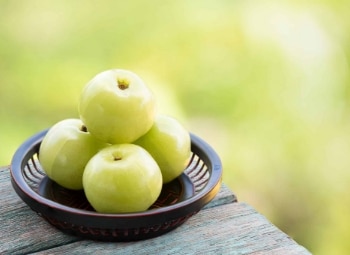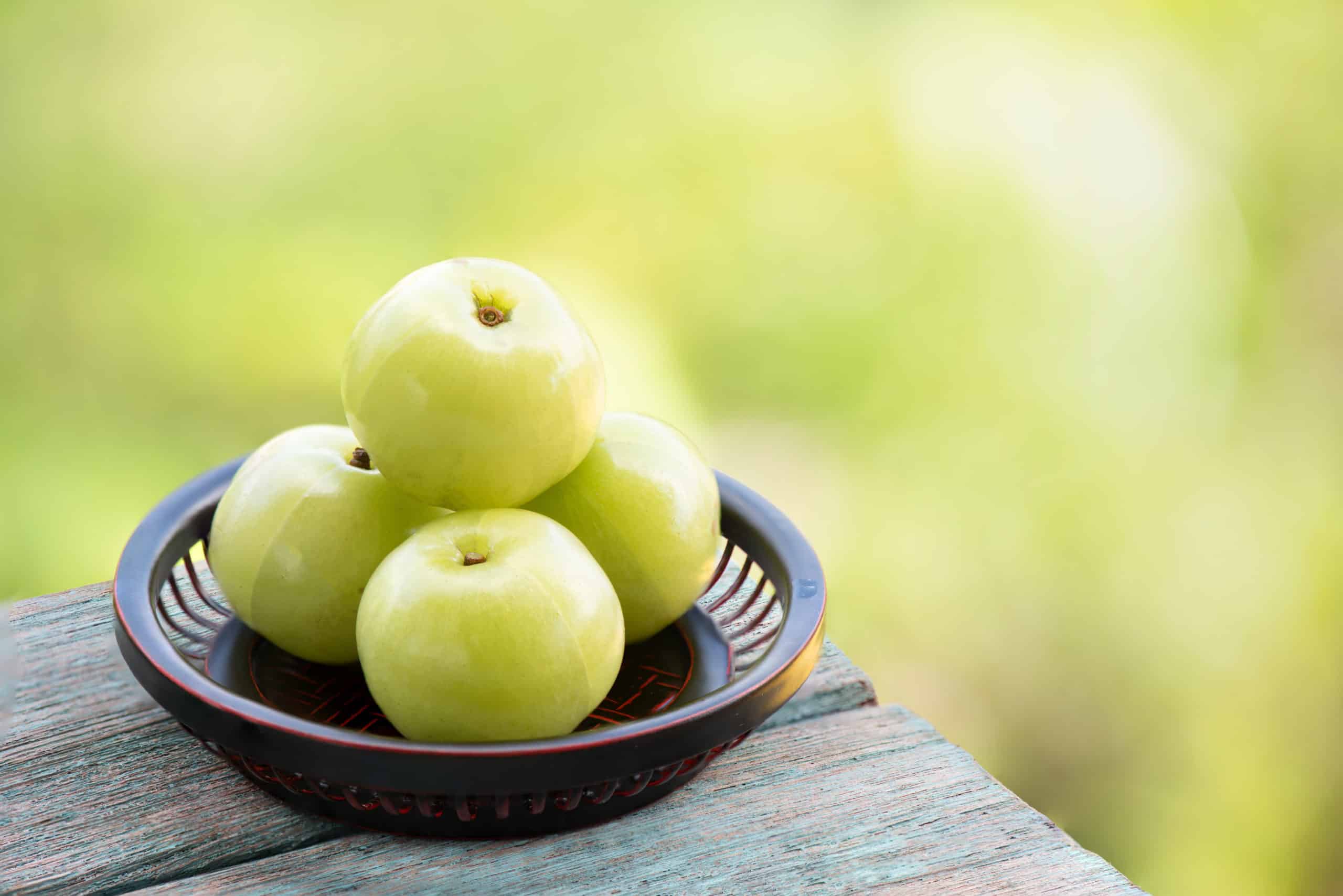Amla, also known as the Indian gooseberry is considered a sacred tree in India. Childhood memories with Amla are very fond. In an Indian household, amla is used in various forms like chutney, murabba, pickles, etc. In Hindu mythology, Lord Brahma’s tears fell on the earth while he was meditating. His tear led to the growth of the Amla tree, the first tree on earth. In folk tales, amla is described as sarvadosha hara, the cure for all diseases. Research has shown immense benefits of the incorporation of amla into the diet.
Amla is rich in Vitamin C which is equivalent to four oranges or five glasses of lemon juice. Let’s understand how amla boosts our immunity:
- Antioxidant
Amla contains loads of phytochemicals like tannins, quercetin, and citric acid. Our body while dealing with pathogens, viruses, and bacteria generates oxidants like hydrogen peroxide and antioxidants. An imbalance between the two leads to oxidative stress. Amla is a strong antioxidant that eats up the free radicals formed by oxidants. This helps in supporting the immune system and reduces the damage to cells. The phytochemical removes the toxins and provides a hepatoprotective effect. - Helps relieve cold and cough
The high content of Vitamin C builds resistance against respiratory tract ailments like cough and cold. Two teaspoons of amla juice with an equal amount of honey when consumed daily protects the body from the invasion of bacteria that are responsible for cold and cough. Excellent source of folic acid, calcium, phosphorus, iron, and magnesium that helps in increasing the white blood cells that boosts immunity - Excellent anti-inflammatory agent
Studies have shown that amla is effective in arthritis, osteoporosis, and joint pain. Amla has an effect at the cellular level by reducing the inflammatory agents like cytokine that are present in chronic diseases like rheumatoid arthritis. Amla consumption has shown a reduction in pain and swelling among arthritis patients. - Anticancer activity
Numerous studies have shown antitumor properties of amla. It has the property to sensitize highly aggressive resistant and metastatic cells. Inhibits cell growth, mutation, cell migration, and invasion. The effective results have been seen in colon and lung cancer. The extract of amla can stimulate programmed cell death without affecting healthy body cells. - Aids digestion
Amla stimulates gastric juices responsible for accelerating digestion, absorption, and assimilation of food, thus preventing acidity. The high amount of fiber regulates bowel movement and relieves digestive ailments.
How to incorporate amla in your diet
- Salads
Instead of lemon juice use amla juice for salad dressing. In this way, you can incorporate the amla without changing much in the taste and also enjoy the benefit. - Chutney
Grated amla with some seasoning and jaggery can provide tanginess to your food. - Boiled amla
Cut pieces of amla can be boiled in salted water and stored. This can be added to any of your vegetables, gravies, and dals. - Amla rice
Like lemon rice, grated amla can be incorporated into the cooked rice to give a tangy taste without losing the nutrients. - Good Nutrition’s Boost & Strengthen
Good Nutrition’s Boost & Strengthen immunity fizz is loaded with goodness of amla and other nutrients like zinc etc.
An amla a day in fresh or dried or any form can provide immense health benefits.
Related Tags













